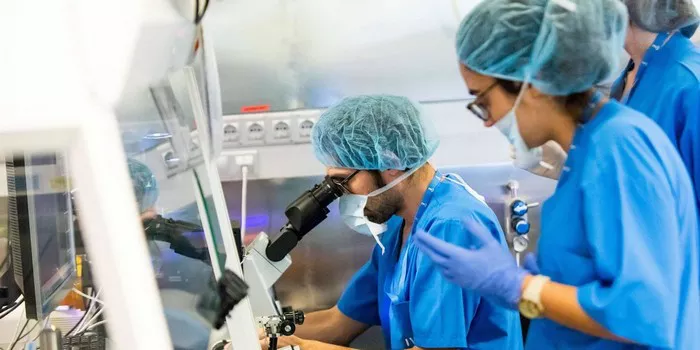A recent study led by Monash University has confirmed a link between BRCA1 gene mutations and a higher risk of infertility. Published in The Lancet’s EBioMedicine, the research indicates that individuals with BRCA1 mutations, known for their association with heightened breast and ovarian cancer risk, also face significant fertility challenges.
The BRCA1 and BRCA2 genes play a crucial role in protecting against breast and ovarian cancers. Mutations in these genes are linked to a greater likelihood of developing cancer, with approximately 1 in 350 women carrying such mutations.
The study utilized preclinical models and human tissue samples to explore the effects of BRCA1 mutations on fertility. Research involving mice demonstrated that the absence of the BRCA1 gene resulted in smaller litter sizes and poorer egg quality, particularly as the mice aged. Notably, egg maturation rates dropped by 45 percent in the BRCA1-deficient mice.
Hormonal analyses and ovarian tissue assessments from women with BRCA mutations were also conducted. According to Professor Karla Hutt, senior author and head of the Monash Biomedicine Discovery Institute’s Hutt Laboratory, prior studies had suggested that partial BRCA1 loss might affect egg numbers, but the full impact of a complete BRCA1 loss had not been thoroughly investigated until now.
The study’s findings, using a specialized mouse model lacking BRCA1 specifically in eggs, revealed a comprehensive decline in egg quantity and quality over the reproductive lifespan. While the overall fertile lifespan of these mice remained unchanged, their reproductive output was significantly diminished compared to their BRCA1-present counterparts.
In women, anti-Müllerian hormone (AMH) levels, a common indirect marker of egg quantity, showed no correlation with egg numbers in ovarian tissue from a small cohort of BRCA mutation carriers. This discrepancy highlights the need for further research to determine whether AMH levels are a reliable predictor of egg count in this population.
Dr. Amy Winship, co-first author from the Hutt Laboratory, emphasized the importance of these findings for women carrying BRCA mutations, suggesting that this knowledge could influence decisions regarding family planning and fertility preservation options such as egg freezing.
Dr. Lauren Alesi, another co-first author, pointed out that additional research is necessary to understand how cancer treatments might further impact fertility in individuals with BRCA mutations. Given that these treatments could exacerbate existing fertility issues, ongoing studies are crucial.
Leslie Gilham, a breast cancer survivor and advocate for Breast Cancer Network Australia and Breast Cancer Trials Australia, co-authored the study. She noted the emotional burden faced by young women with BRCA1 mutations or breast cancer, emphasizing that this research provides essential information to guide fertility decisions and address significant concerns for this demographic.
The study also involved collaboration with the Royal Women’s Hospital’s Gynaecology Research Centre and the University of Melbourne’s Department of Obstetrics and Gynaecology.
Related Links:

























